Types Healthcare Applications for Patients in 2024
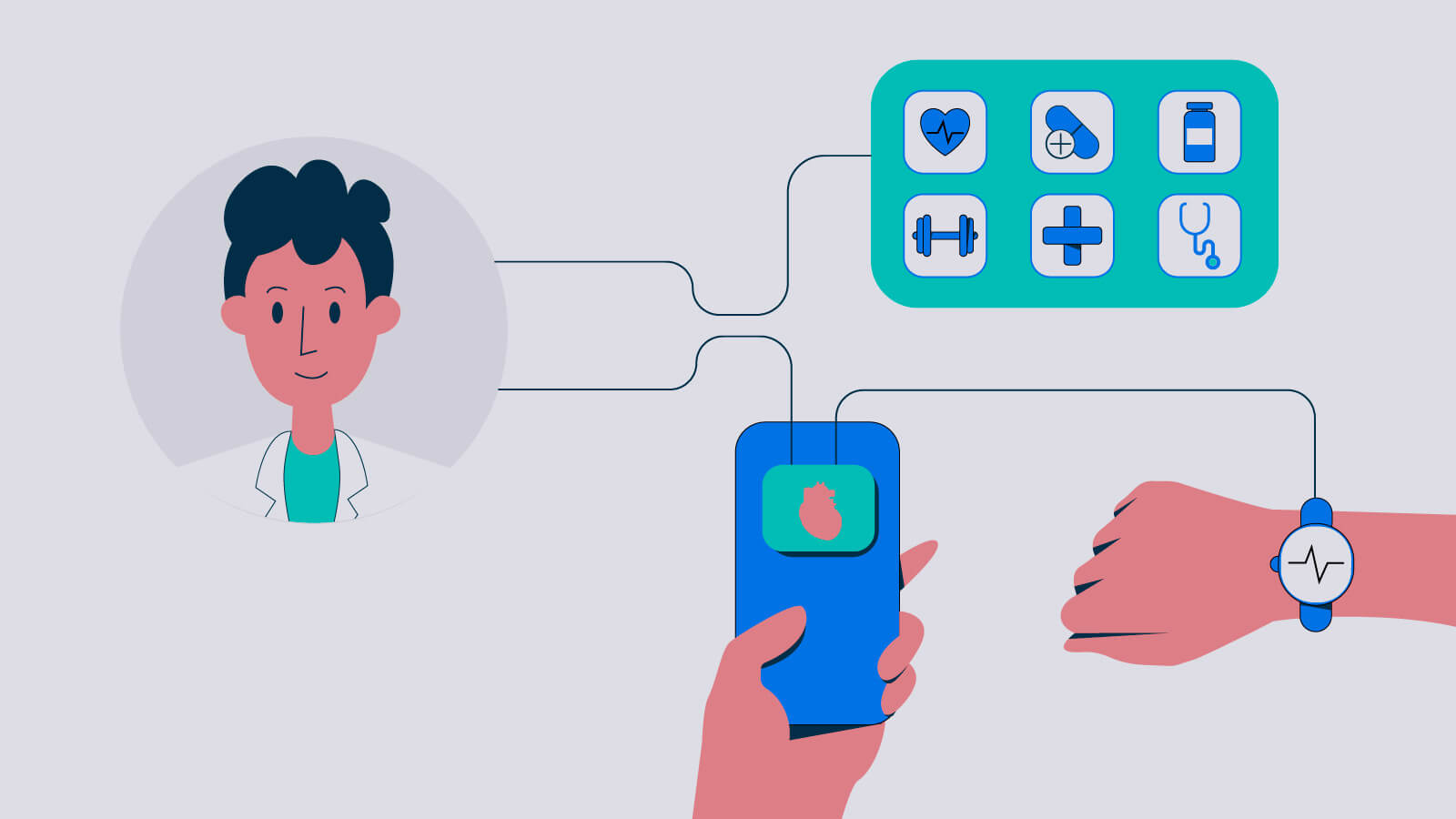
Digital solutions continue evolving, getting deep into healthcare. Providing win-win results for both patients and physicians. Targeting both groups, the industry is divided into patient-centric apps and those serving the needs of physicians.
With over 4 billion active mobile users, the great part of them is patients. Unlike entertainment apps, mobile healthcare has its predetermined target audience that has significantly grown during the pandemic. According to the latest market review, the patient-centric healthcare app market has grown, reaching $3,85,767.5 million. But what is more impressive is the future predictions; as foreseen, the market will continue growing at a CAGR of 34,90% by 2027 becoming one of the largest segments in the mobile app market.
Increasing awareness about health, self-care, and hygiene has brought a notable rise in personalized healthcare apps usage, thus fueling the global patient-centric app market growth. Continue reading to get more insights into the tendency, industry specifications, and ways to become part of developing your own healthcare mobile app.
What do patients want in a healthcare app?
With pre-determined targeted users, mobile healthcare applications solve a huge marketing objective and focus on delivering high levels of productivity wrapped in engaging design. Today, patients seek mobile solutions to digitize their interaction with hospitals and track and save health data. The only thing to do is listen to the needs and requirements and move in the direction.
To understand the needs of patients and be able to create a responsive app, here are key points to focus on:
- Simply interface with easy access to functionalities
- Actionable and detailed information
- Communication with professionals
- Community of patients
- User-friendly UI
- Integration with wearable devices and IoT
Healthcare mobile applications for patients are categorized according to the purpose and patient needs. Here is a list of the key categories of healthcare apps that can be very useful for personal healthcare management. We will showcase the following categories:
- Healthy lifestyle apps
- Women’s health apps
- Symptom checker apps
- Chronic condition apps
- Urgent care apps
- Doctor-on-demand apps
- Reminder apps.
Healthy Lifestyle Apps
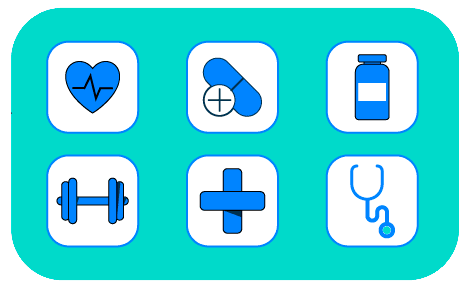
A healthy lifestyle is a broad term and can include many services. The most popular software in this category is fitness and diet apps. These provide tips and programs for workouts and nutrition.
Statista reports that 38% of adults in the US use fitness apps occasionally or regularly.
Other apps can help keep your mind in health, not only your physical body, and concentrate on meditation, relaxation, and proper sleeping. A great example of such an app is Headspace which helps to have a clear mind and positive state.
Women's Health Apps

These applications are used to control the menstrual cycle or track ovulation. They are also used for fertility purposes. A few examples of these apps are Clue and myPill.
As per gender targeting, the top popular health-related apps are women's menstrual or ovulation cycle tracking apps. For instance, the Fitbit Versa smartwatch’s advanced period tracking provides a new experience. Another interesting project is the Bellabeat Leaf in jewelry worn on the neck that offers period tracking.
Other variants of apps that can fall in this category are apps for parenting. Moms can maintain the schedule of their babies in regards to feeding, sleeping, doctor visits, etc. IoT technology integration makes it possible to keep track of the infant’s condition during sleep.
Symptom Checker Apps
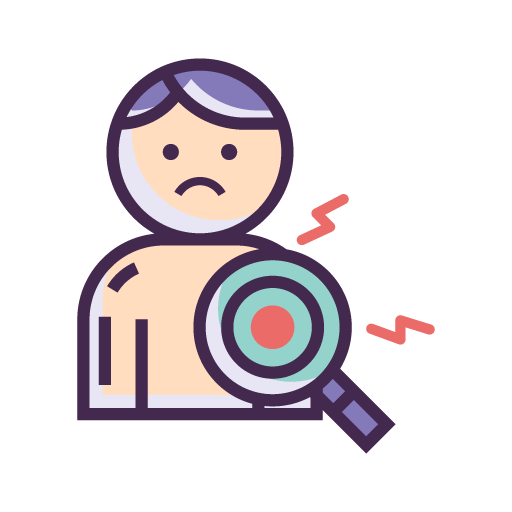
These kinds of apps for patients may become a great finding for those who start filling and observing some symptoms of sickness.
Do you feel nausea, caught, have a headache, or have other concerns? Symptom checker software allows for evaluating your health state in a moment. For example, the Symptomate app holds detailed information of more than 800 conditions with AI-assistant technology. The users enter their symptoms, answer a couple of follow-up questions, and receive a result of the condition, what it caused, and potential actions to take linking to whom and where to address it.
Chronic Condition Apps
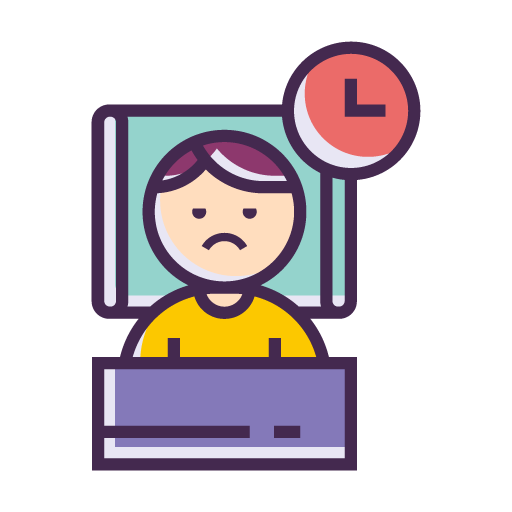
Solutions for chronic illness management are life-changing tools for diabetes, asthma, epilepsy, or different heart diseases. The statistics provided by the Centers for Disease Control and Prevention account that chronic health conditions provoke approximately 70% of US deaths, and almost half of the American population has at least one chronic illness.
As a reference, mySugr and Diabetes are the applications that help monitor insulin levels. Other chronic condition apps track blood pressure and condition of heart state.
Urgent Care Apps
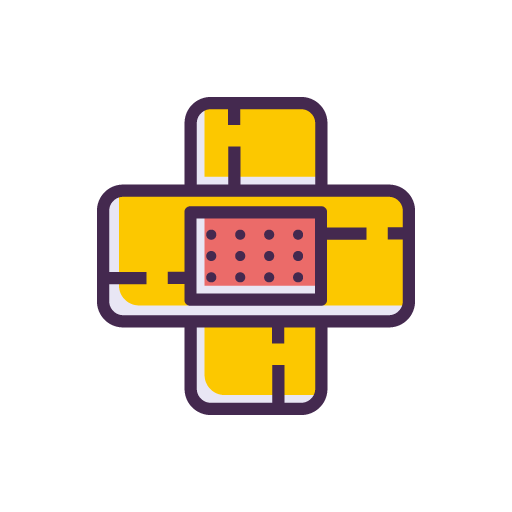
These apps for patients help to receive instant medical services. The service integrates with software connected to nurses, doctors, or registered medical personnel in an emergency.
Alternatively, users receive care and consultation from licensed doctors. This app market is generally divided into emergency apps, software to communicate inside the hospital, and post-clinical apps. These days, there is a growing demand for post-surgery supervision products.
Key players in the urgent care app market are PatientSafe Solutions, Allm Inc., Pulsara, and others.
Doctor-On-Demand Apps
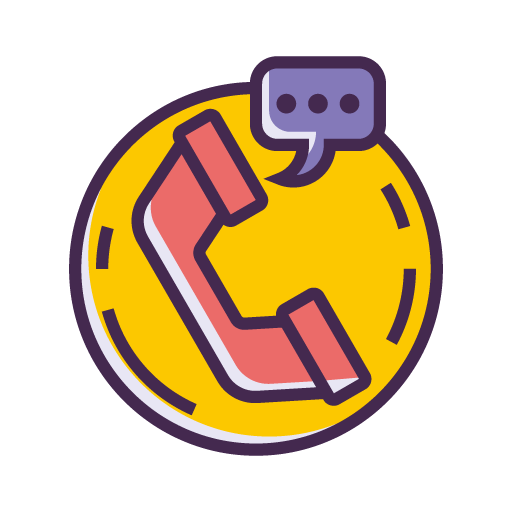
Almost 90% of medical appointments are done over the phone while people can wait a few weeks to receive a slot in the doctor’s calendar. Doctor-on-demand apps like ZocDoc or AmWell can resolve this issue. Also, these apps help overcome far away distances and get the necessary assistance in the comfort of home via video-conferencing.
Doctor-on-demand apps can be used for virtual visits, managing health records, digitized prescriptions, handy booking services, and matching.
Reminder Application For Healthcare
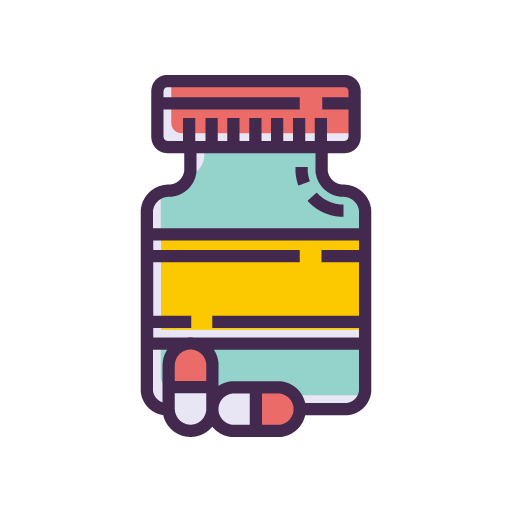
Keeping a good health condition is a long-term project that implies taking the prescribed medicine, microelements, and vitamins.
Reminder applications can help control this important procedure by setting automated and timely alarms.
Some good examples of reminder applications are TabTime Timer, TimeCap, PillPack, and more.
How many health apps are there in 2024?
The dramatic rise in mobile apps’ demand, registered during the pandemic, was exceptionally measurable in the mobile healthcare segment. The users started being more concerned about their health, looking for new apps to track health conditions and keep a healthy lifestyle. With the drastic demand in mHealth, about 52,565 healthcare apps are found only on the Google Play market. For 2022 Q1, there were 51,370 apps registered on App Store.
How do health apps make money?
The business models of digital health companies are developed to make the apps gain users and generate revenue through subscriptions, offering premium features and in-app purchases, or paid apps.
How much does it cost to make a healthcare app for patients?
Mobile app development is about investments and cost, time, and devotion. Roughly estimated, the development of a healthcare app may cost about $25.000. For detailed estimation, the price for healthcare mobile app development, including idea generation and execution stages, may be approximately $425.000 depending on the app complexity and the hourly rates of the development team. Depending on the app features, the final cost may change, but we can now show the features of MVP.
The basic functions of healthcare apps for patients:
User profile: the function to manage accounts and personalize information.
User dashboard: the interface to see personal information.
Search: the option to search any information with keywords.
Push notifications: sending regular notifications to the user
Video coaching: real-time interaction with the user through online or recorded videos.
Signup/Login: the feature to register or authorize an account through email or social media accounts.
Chat: in-app chat allows users to interact with physicians, thus providing higher customer engagement.
Tracker: the feature allows tracking of user activity and saves in history.
Personal coaching: as an additional feature, the app may have an online and offline coach to motivate in achieving goals.
Activity feed: the daily updated information with new data based on user activity
Rewards: giving virtual credits and rewards to users for achieving their goals.
Wearable device connection: as a priority feature, the health mobile app needs to have a wearable device connection to display data from trackers.
Required Development Team Structure
To convert your idea into a product, you need to have a team of developers with relevant skills and expertise. Depending on the platform chosen for the future app, the team may have Android or iOS developers. You can also choose the third option of building a cross-platform app. In this case, the development team needs to have Flutter or React Native developers.
Required team structure to build mobile healthcare app:
- iOS/Android/Cross-platform developers
- Project manager
- Business analyst
- Backend developers (.Net Developers, NodeJs Developer, PHP Developers)
- Front-end developers (UI/UX Developers, AngularJS Developers)
- Cyber security expert
- QA experts
As an approximate price estimation for creating a mobile health app, let’s take 30-$$40 developing rater per hour and count total hours spent on project implementation per specialty.
| Professionals | Total Hours | Total Cost |
| Project Manager | 80 | $3200 |
| Mobile app developers | 80 | $2400-$3200 |
| Mobile app developers for continuous code review | 16 | $480 |
| QA engineer | 16 | $640 |
| Cyber Security Engineer | 16 | $640 |
| Backend Developer | 80 | $3200 |
How Much Does it Cost to Make an App HIPAA Compliant?
The Health Insurance Portability and Accountability Act regulates the protection of patients’ data. To become a reliable application, the healthcare-related app needs to be HIPAA compliant. The compliance is planned in the first stages of app development by implementing all those technologies that provide necessary features. To make the app HIPAA compliant, you should follow four rules:
- Privacy rule
- Security rule
- Enforcement rule
- Breach notification rule
The first criterion to be HIPAA compliant is using cyber security technologies and data encryption when transferring between devices and servers.
Providing HIPAA compliance to mobile health apps is very expensive. The custom HIPAA compliant app may cost +$50.000 to the app development price. The costs include the development of the system, necessary certifications, audits, etc.
If you are not ready to pay the money, you can use HIPAA compliant infrastructures – IaaS, for example, Amazon Web Services, TrueVault.
Do You Need Help in Building Apps for Patients?
With global changes happening now, we can say for sure that mHealth is the future. The technologies are developing, arming engineers with new intelligent ways to support patients. Investing in mobile healthcare today will become a valuable asset tomorrow.
As your assistant executing your idea, Addevice offers best practices and shares experience in the mobile healthcare industry.
Mobile Technology in the Healthcare Industry, healthcare in mobile, medical mobile apps, medical apps development, Healthcare Applications, Apps for Patients, Apps for Clinics, Native Apps, Translation App Development
Develop Your Mobile Health App
Transform healthcare experiences with your own mobile health app
Our Expertise Covers:
✅ Telemedicine and virtual consultations
✅ Electronic health records integration
✅ Medication tracking and health monitoring features
Table of contents
FAQ
The most important functions required in health apps are scheduling or canceling an appointment, searching for prescriptions , ordering online, and having easy access to medical records.
Mobile app development is about investments and cost, time, and devotion. The price for healthcare mobile app development, including idea generation and execution stages, may be approximately $425.000 depending on the app complexity and the hourly rates of the development team.
Health apps offer health-related services available for smartphones and portable devices.
Healthcare mobile applications for patients are categorized according to their purpose and needs.
- Healthy lifestyle apps
- Women’s health apps
- Symptom checker apps
- Chronic condition apps
- Urgent care apps
- Doctor-on-demand apps
- Reminder apps
- User profile
- User dashboard
- Search
- Push notifications
- Video coaching
- Signup/Login
- Chat
- Tracker
- Personal coaching
- Activity feed
- Rewards
- Wearable device connection
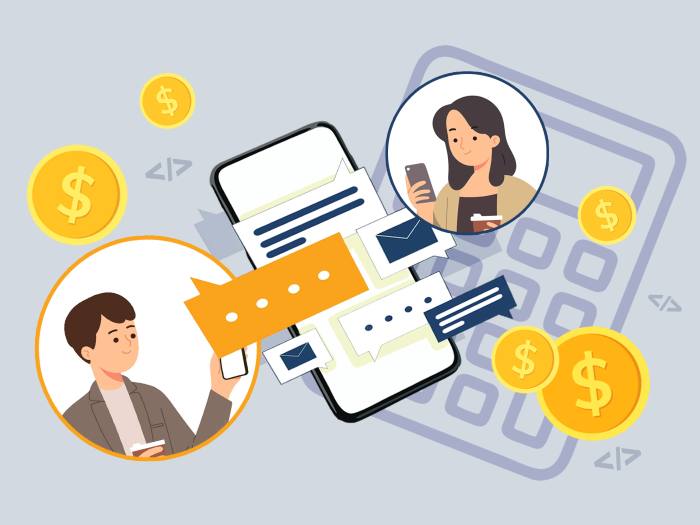 How Much Does It Cost to Build a Messaging App?
How Much Does It Cost to Build a Messaging App?
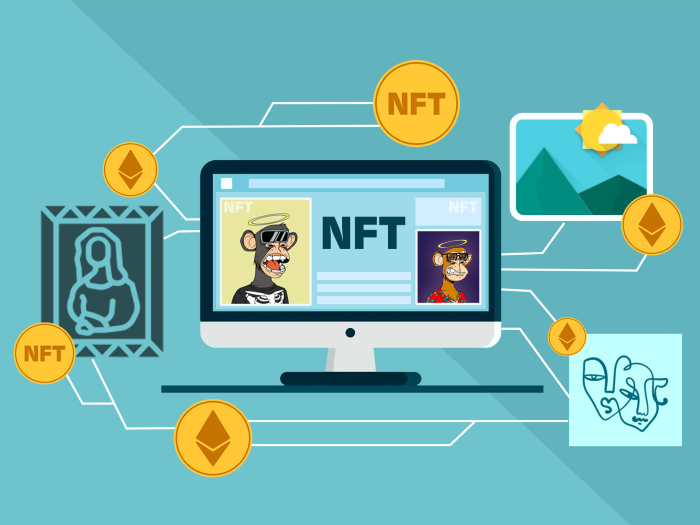 How to Create an NFT Marketplace: Development Guide
How to Create an NFT Marketplace: Development Guide
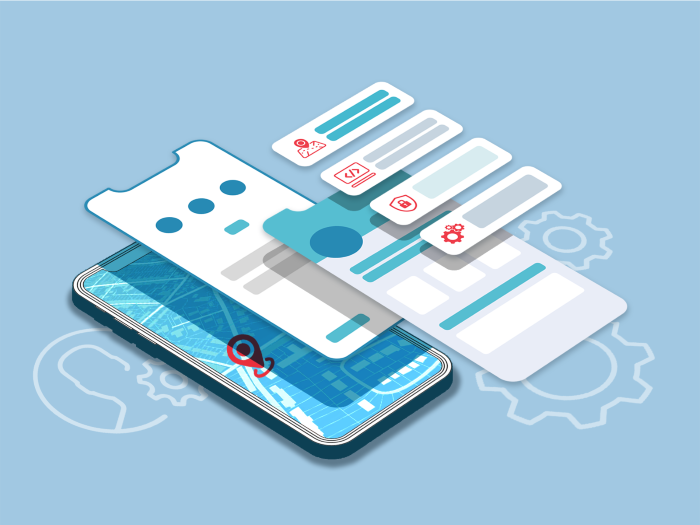 Must-Have Uber App Features: Building a Ridesharing App
Must-Have Uber App Features: Building a Ridesharing App